Whole Foods & Poppies: The speed news can spread and the impact on reputation
November 13, 2020
Last Thursday, Whole Foods Market got into a bit of trouble when CBC News reported that its team members in Canada were asked not to wear poppies to commemorate Remembrance Day. As a result of the public outcry, by the end of the day on Friday, the company announced it was changing the policy and allowing staff to wear a poppy.
The backlash to the news was quick and broad. Prime Minister Trudeau described the decision as a “silly mistake” and Ontario Premier Doug Ford even announced that he would make it illegal for businesses to prohibit team members from wearing poppies.
Given this news, we wanted to assess how quickly news spread and the potential impact on Whole Foods’ reputation. Our team moved quickly and asked two questions on our weekly national omnibus survey.
We interviewed over 1,600 Canadian adults and used an experimental questionnaire design. Half the sample was told about the Whole Food Market’s decision but not that they had reversed the decision on Friday. The other half was told of the decision and the reversal.
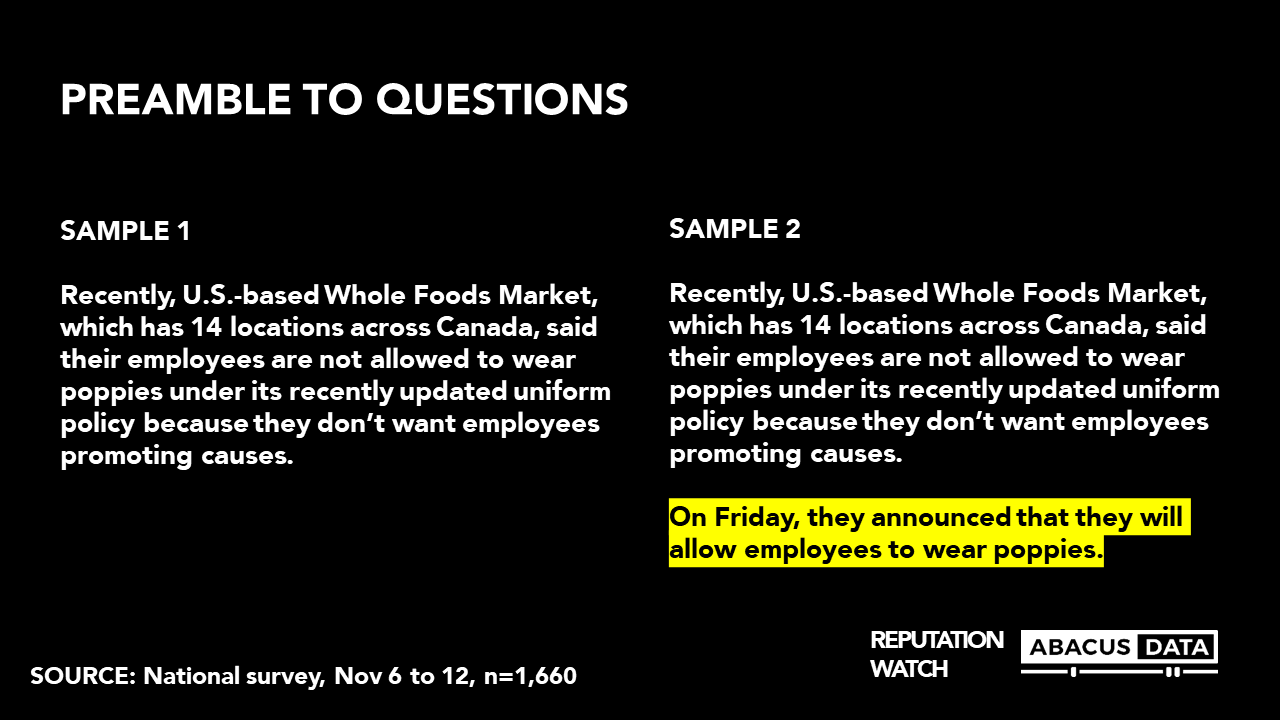
Here’s a summary of what we found.
WITHIN A WEEK, 7 IN 10 CANADIANS WERE AWARE OF THE INCIDENT
Attention to the issue was higher than other issues we have measured in the past. Seven in ten (71%) were aware of the incident with almost half saying they are following the issue closely or have seen at least a few things about it.
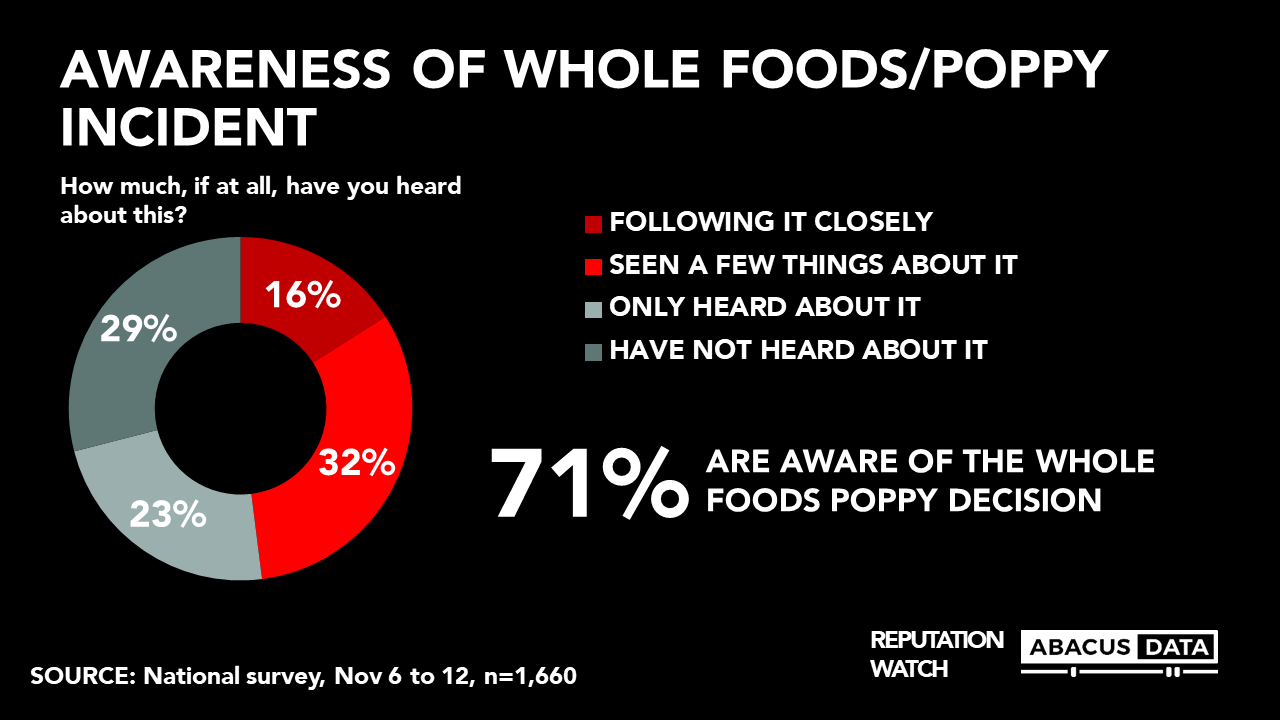
Note, awareness didn’t increase over time.
EVEN WITH THE REVERSAL, DAMAGE TO WHOLE FOOD’S REPUTATION WAS DONE. ALMOST HALF SAID THEY WOULD BE LESS LIKELY TO SHOP AT WHOLE FOODS MARKET.
When asked whether they would be more or less likely to shop at Whole Foods Market, 48% said they would be less likely to shop there.
But even with Whole Foods Market’s decision to allow staff to wear a poppy, the impact was quite substantial. 41% of those told of the company decided to reverse its policy said they would be less likely to shop at the store. Among the half sample respondents who were not told about the reversal, 52% said they would be less likely to shop at Whole Foods Market.
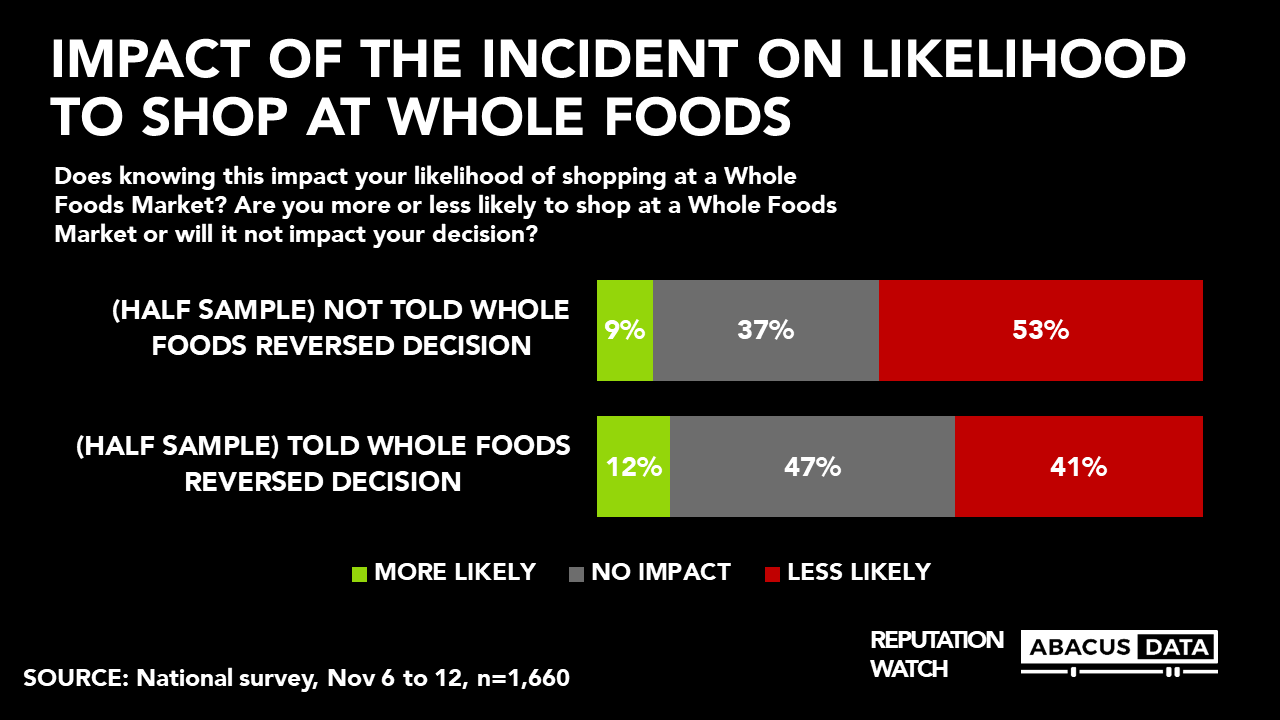
A few interesting findings from the crosstabs:
Those following the story closest were most likely to say they are less likely to shop at Whole Foods Market as a result.
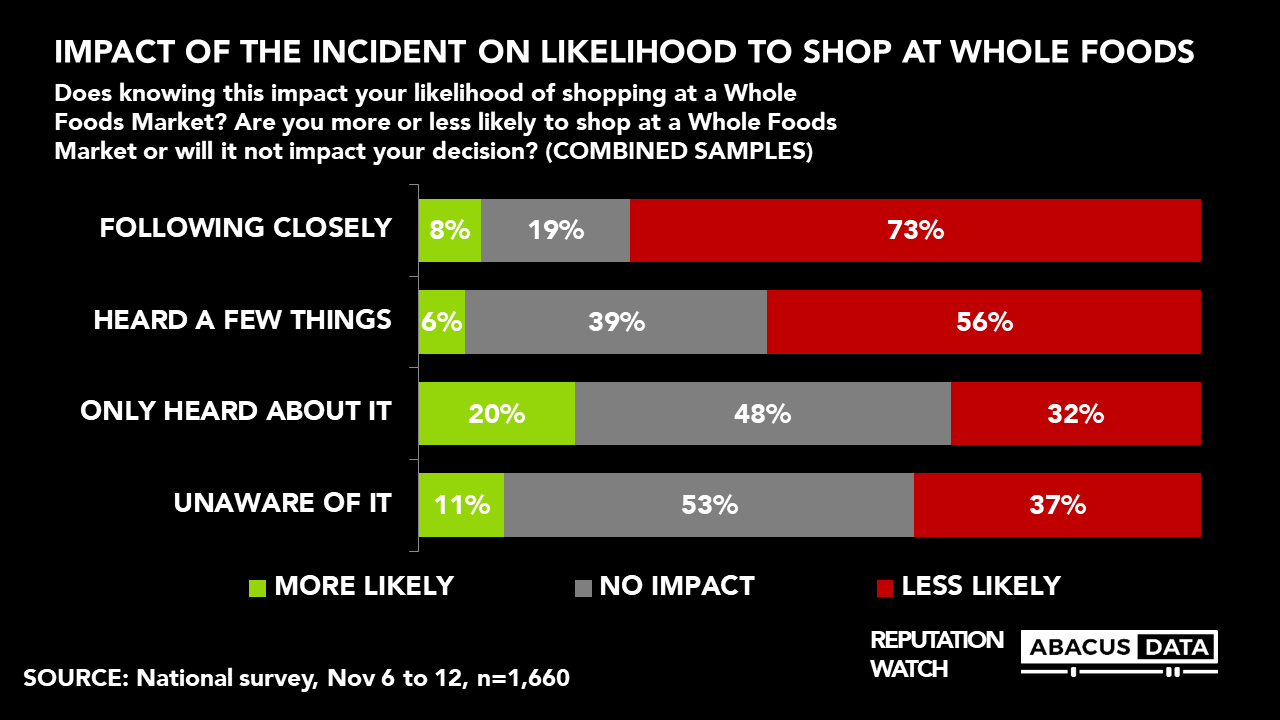
Older Canadians were more likely to say they are less likely to shop at the store than younger Canadians.

The impact was consistent across the political spectrum. Half or more of Liberal, NDP, and Conservative voters said they would be less likely to shop at Whole Foods Market.
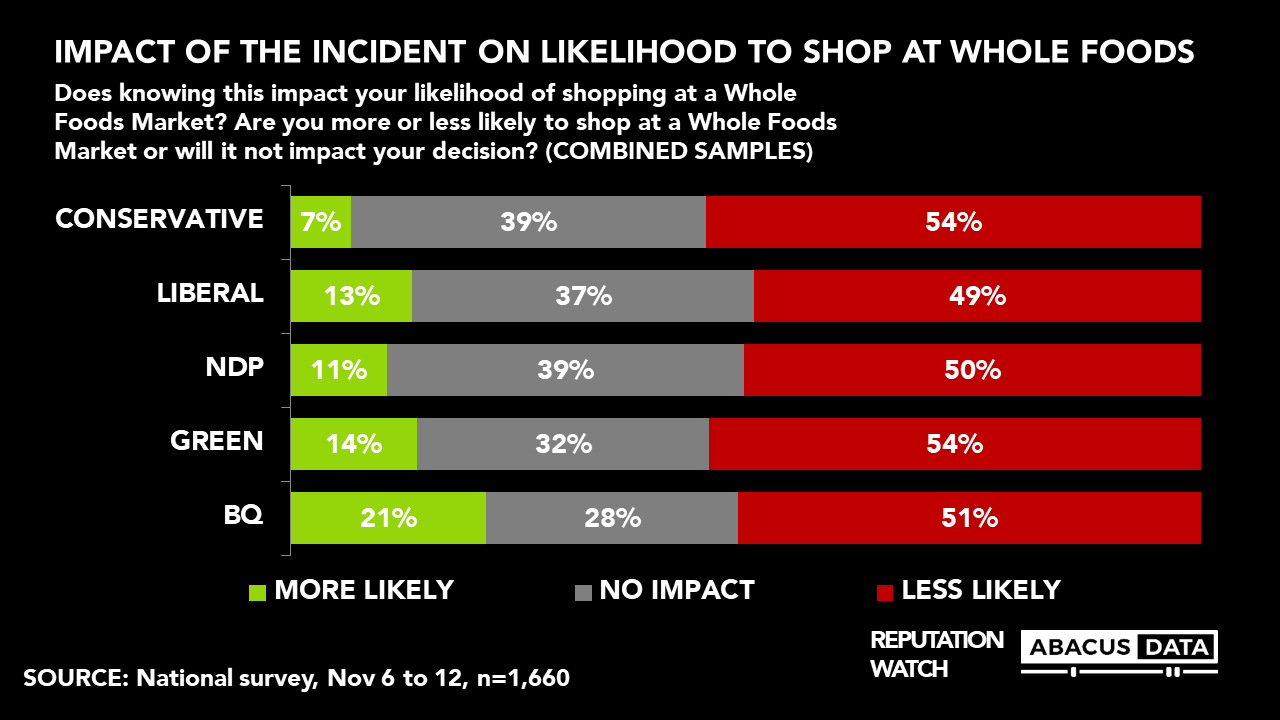
THE UPSHOT
Within a few days, 7 in 10 Canadians were aware of the decision by Whole Foods Market to not allow their staff to wear poppies. The reaction to the decision was quick and crossed the political spectrum. Almost half of Canadians said they would be less likely to shop at the retailer as a result.
The lessons?
a. Information can move so quickly today.
b. Remembrance Day and Canadian veterans are revered in Canada and the high esteem crosses the political spectrum.
c. Even when you change course, the impact could be lasting.
d. Everything is political. Business decisions can quickly become political and impact consumer behaviour.
e. Local context matters. Multi-national companies need to know how local populations might react. This is where research and intelligence can support better decisions.
We meet leaders all the time who aren’t sure which choice is the right one. They struggle to achieve their objectives.
Our work helps respond to challenges and take advantage of opportunities every day.
Including:
Testing messages to decide which one will captivate and motivate the right audiences through creative qualitative research.
Assessing the impact of big events on an organization or individual’s image and brand through reputation research.
Demonstrating public support for policy and political action through public opinion research and polls.
Informing big decisions and strategies with stakeholder intelligence through membership, employee, and stakeholder studies.
Exploring how audiences will react to new product or service offerings through surveys, focus groups, and one-on-one interviews.
SCHEDULE A MEETING TODAY AND LET’S GET STARTED
ABOUT ABACUS DATA
We are the only research and strategy firm that helps organizations respond to the disruptive risks and opportunities in a world where demographics and technology are changing more quickly than ever.
Find out more about what we are doing to help clients respond to the COVID-19 pandemic.
We are an innovative, fast-growing public opinion and marketing research consultancy. We use the latest technology, sound science, and deep experience to generate top-flight research-based advice to our clients. We offer global research capacity with a strong focus on customer service, attention to detail and exceptional value.
We were one of the most accurate pollsters conducting research during the 2019 Canadian Election.

Contact us with any questions.
Find out more about how we can help your organization by downloading our corporate profile and service offering.
METHODOLOGY
The survey was conducted with 1,660 residents of Canada aged 18 and older from November 6 to 12, 2020. A random sample of panelists was invited to complete the survey from a set of partner panels based on the Lucid exchange platform. These partners are typically double opt-in survey panels, blended to manage out potential skews in the data from a single source.
The margin of error for a comparable probability-based random sample of the same size is +/- 2.5%, 19 times out of 20.
The data were weighted according to census data to ensure that the sample matched Canada’s population according to age, gender, educational attainment, and region. Totals may not add up to 100 due to rounding.




